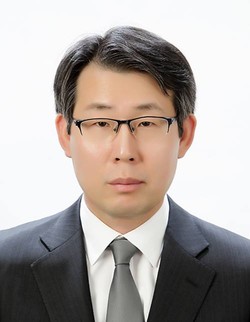A stable peace based on diplomatic diversification
By Dr. Bo-hyuk Suh (Research Fellow, Korea Institute for National Unification)
In the world of the Chinese character culture, including Korea, the year begins in the real earnest only after the Lunar New Year.
During the Lunar New Year holidays, the Korean Peninsula suffered a cold wave from Siberia. The severe cold that came in decades seems to reflect the frozen relationship between South Korea and North Korea and economic difficulties.
However, considering the sincerity of Koreans who are more patient in the face of difficulties, I believe that the situation on the Korean Peninsula will gradually improve after the cold wave passes.
Last year, North Korea upgraded its nuclear capabilities by conducting more than 30 tests of various types of missiles.

North Korea is continuing to test-launch missiles this year, when its seventh nuclear test is expected.
However, some analysts say that North Korea is being sanctioned by the international community, and that the food situation is unusual.
Of course, North Korea wants to reduce international pressure by cooperating with China and Russia, but there is a limit to continuing trilateral cooperation due to the lack of circumstances inside and outside of the two countries.
After all, for North Korea, it is considered to be the best to improve relations with South Korea to tide over the economic difficulties and international isolation.
To do so, progress must be made in the plans of denuclearization.
If North Korea misses this time, it will be forced to defend its regime only with nuclear weapons.
While focusing on the Korea-U.S. alliance, the Government of President Yoon Suk-yeol is conducting multidimensional diplomacy, including international, regional, and bilateral diplomacy.
The Indo-Pacific Strategy was announced late last year to expand the horizon of Korean diplomacy based on values.
At the same time, President Yoon made clear his position of embracing China.
He also expressed his intention to develop future-oriented bilateral relations with Japan while dealing with her distortion of history.
In the economic and resource diplomacy, Yoon is taking a more practical attitude.
The new South Korean government also announced its bold policy toward North Korea.
Yoon hoped for North Korea's will to denuclearize and also disclosed his intention and willingness to support and cooperate with North Korea.
Of course, there has been no positive response from North Korea so far, but it is important to maintain a consistent policy stance.
It includes a message that North Korea will get carrots for positive responses but sticks for negative responses.
The mainstream view of the recent international situation understands the relationship between the U.S. and China with from the eyes of a conflict theory.
However, dialogue and cooperation are resuming in some issue areas such as trade and climate change.
And in the Ukraine crisis, contrary to predictions, the U.S. and China have not sharply confronted with each other.
It is appropriate for South Korea to strengthen the Korea-U.S. alliance based on values and norms.
At the same time, Korea-China relations should be restored to obtain China's cooperation in economic interests and our policies on North Korea.
In the Korea-Japan relationship, too, Seoul should also take initiatives to lead a future-oriented relationship where she can gain while making concessions on the issues of their history.
Through the support and cooperation of the international community, Korea has enhanced its national prestige and laid the foundation for peaceful unification.
Therefore, it is a very important task for Korea to value international norms, diversify its diplomacy, and manage the surrounding situation.
The prerequisite is to win both international and domestic support.
It is fundamental that there should be dignity and moderation in the words and actions of all government officials engaged in diplomacy.
In particular, cooperation with China as well as with the United States is particularly important for denuclearization of the Korean Peninsula and improvement of relations between the South Korea-North Korea relations.
Internally, bipartisan cooperation should be created to collect divided public opinion on the problem of reunification of the Korean peninsula.
Writer’s note: This article has nothing to do with the position of the organization to which the writer belongs, but only expresses the writer’s own personal views.

